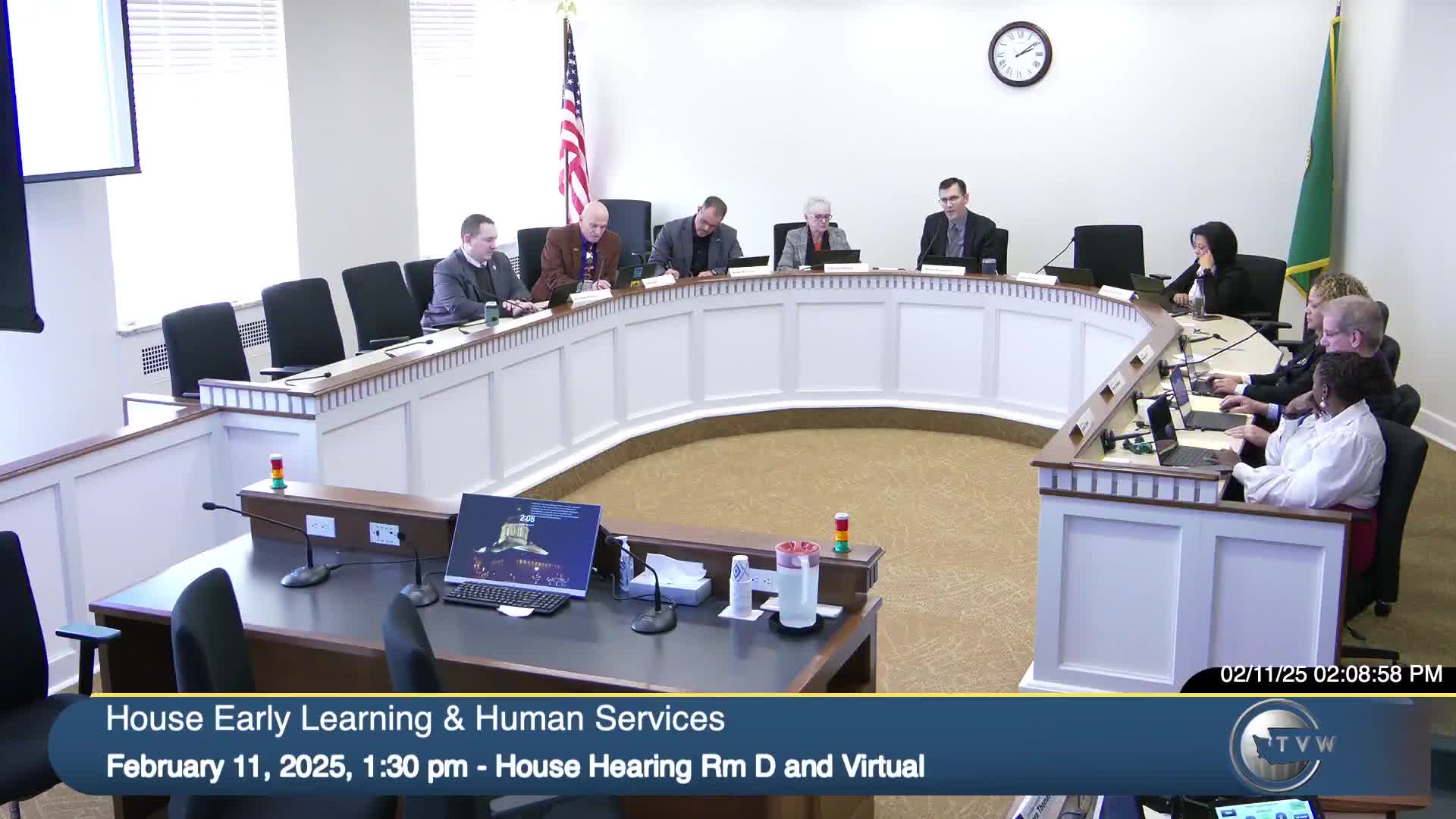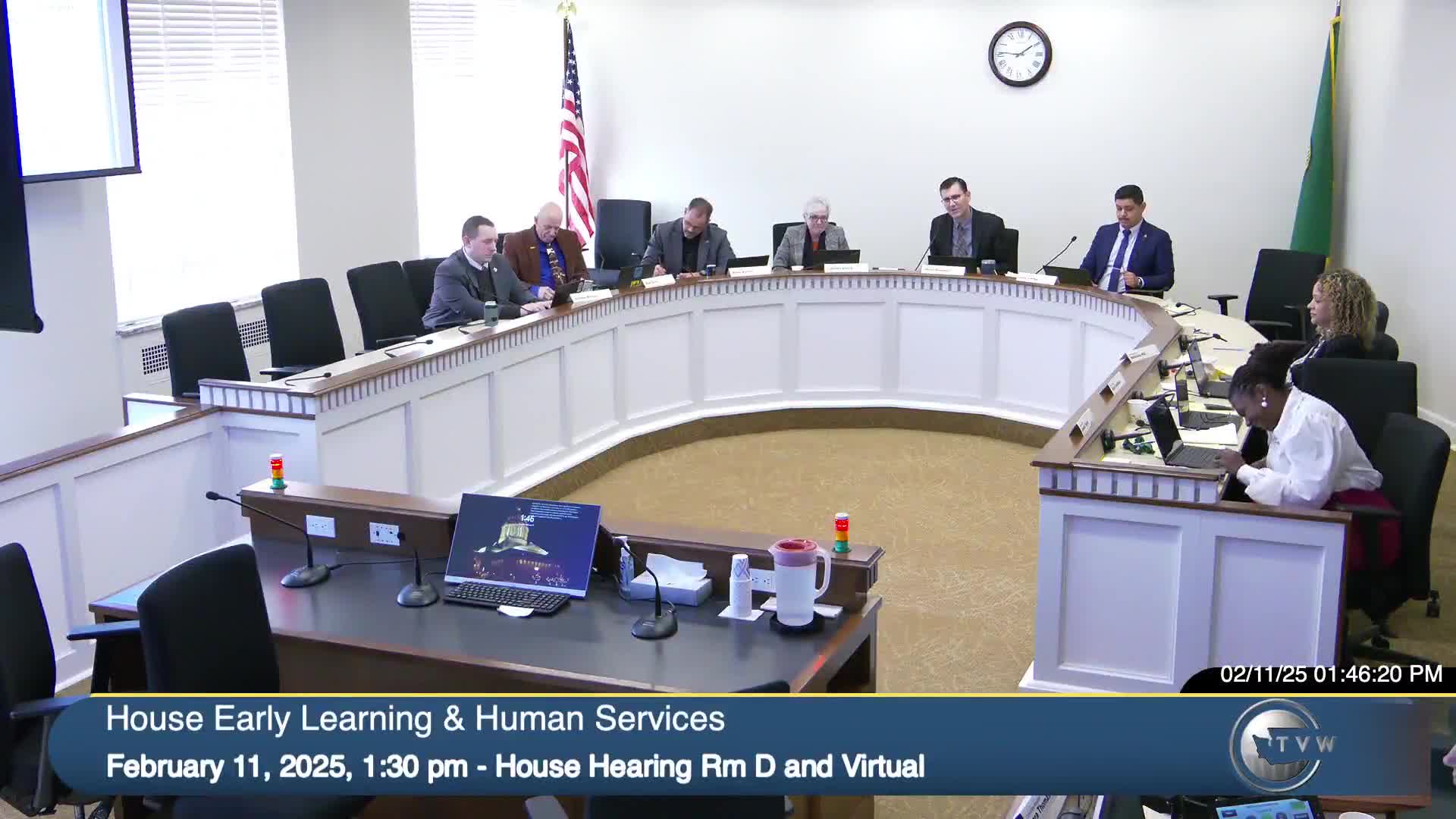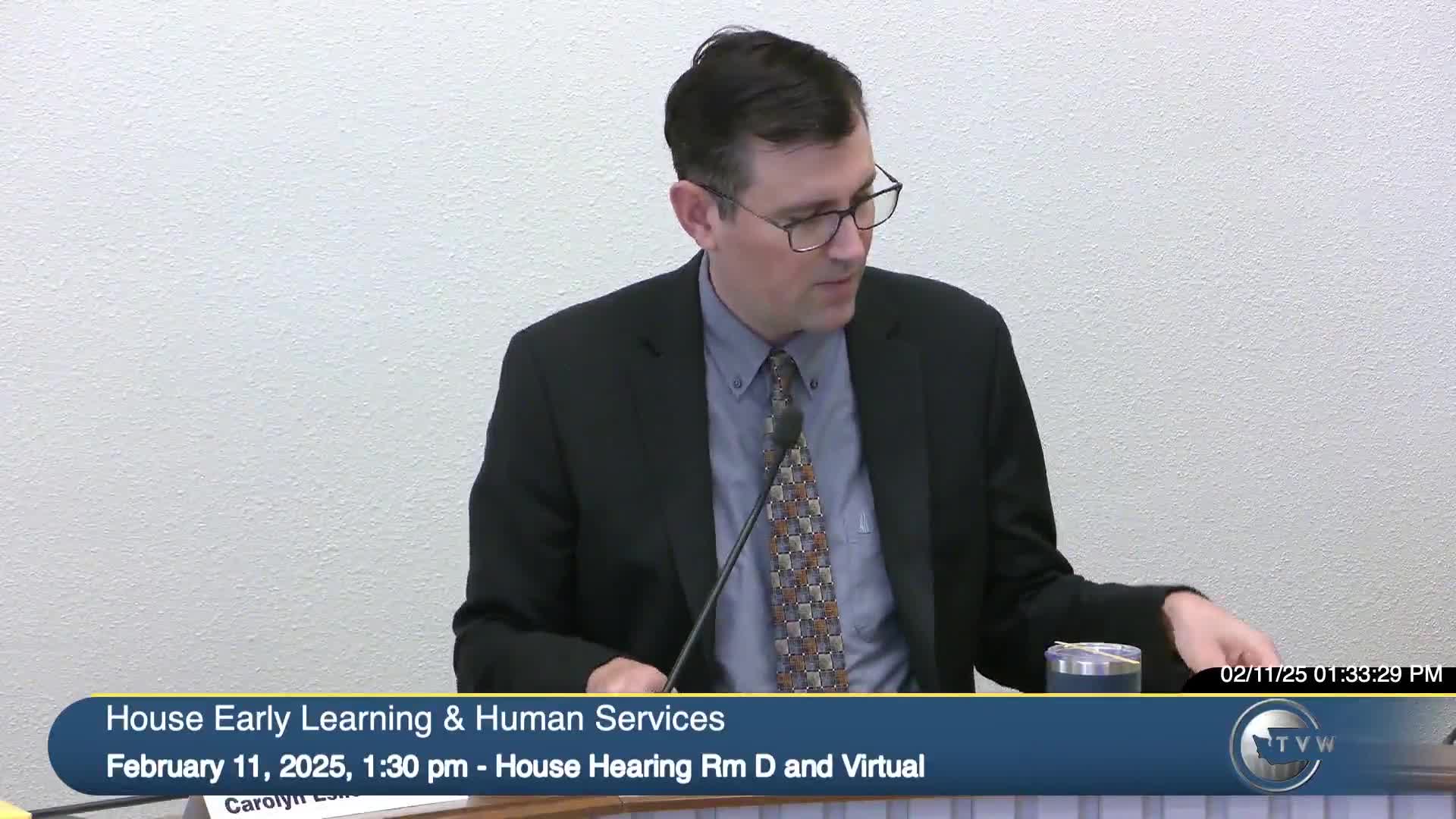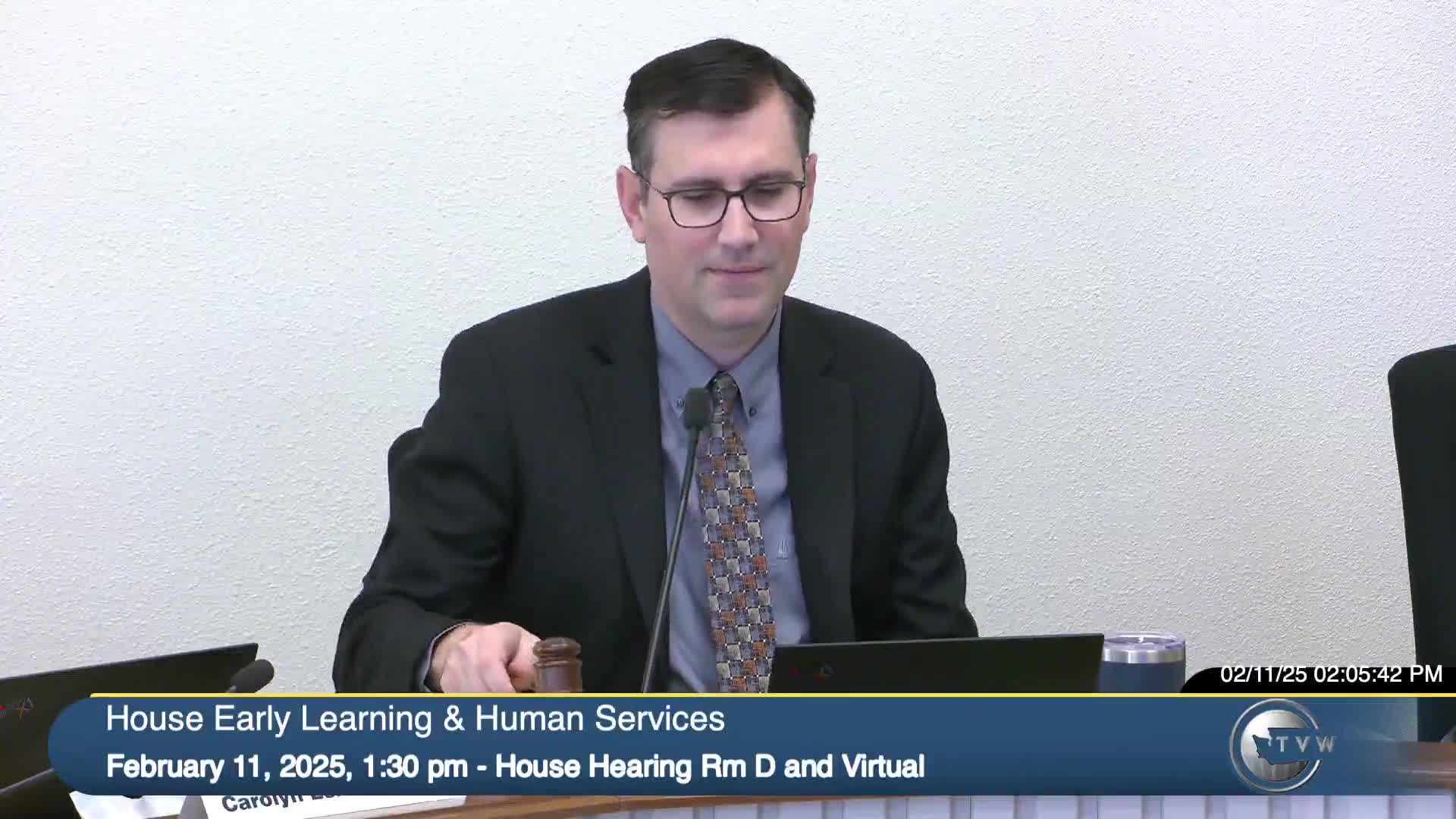Article not found
This article is no longer available. But don't worry—we've gathered other articles that discuss the same topic.

Bill would set safe operating capacity for juvenile institutions and allow limited transfers to DOC; witnesses urge safeguards

Debate in committee over shifting family reconciliation services to community providers

Committee hears bill to expand TANF time‑limit hardship exemptions amid testimony about families cut off

